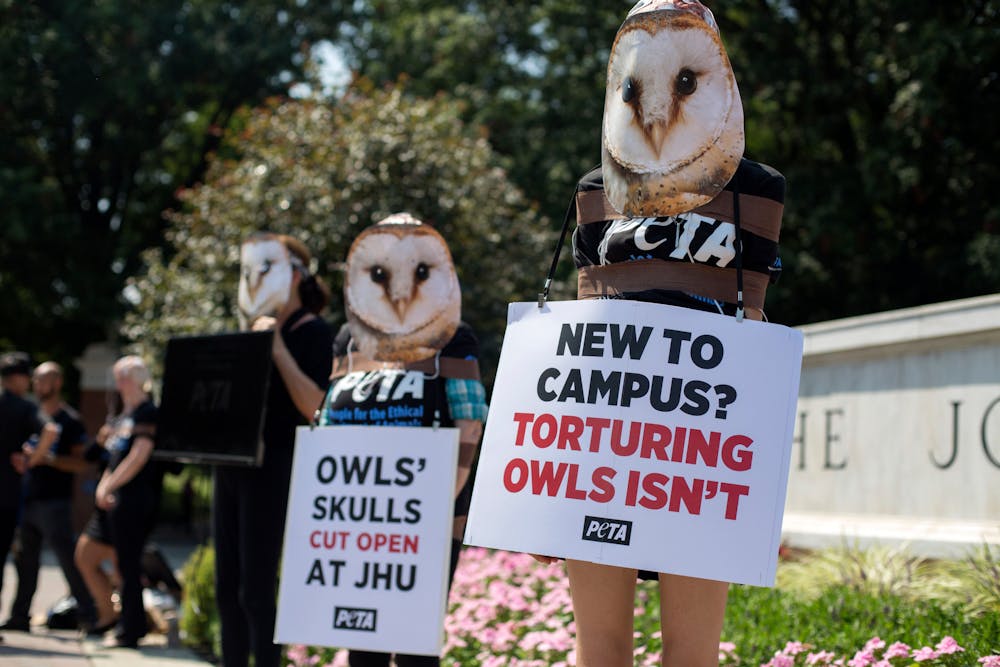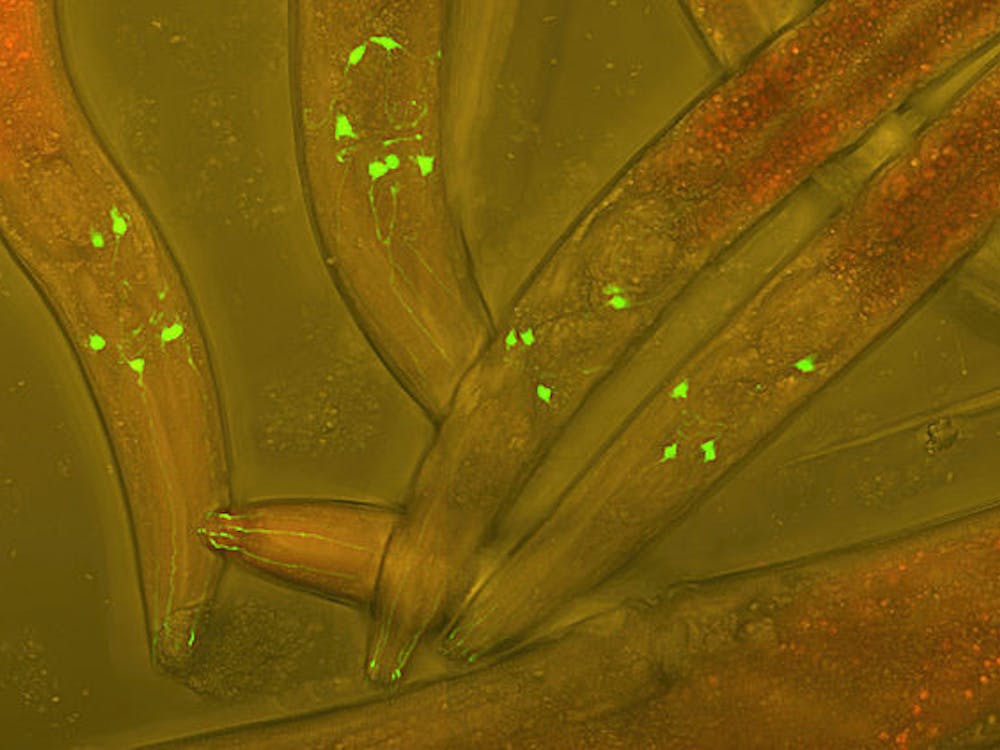New students attending Orientation Week watched as supporters representing People for Ethical Treatment of Animals (PETA) held a protest on Thursday, August 26. The protesters gathered in front of the Beach at 12 p.m. in opposition to research conducted by Shreesh Mysore, an assistant professor affiliated with the Department of Neuroscience and the Department of Psychological & Brain Sciences.
Mysore’s lab performs procedures on barn owls to study human spatial selection and selective spatial attention.
Protesters appeared in owl masks and with electrodes and wires protruding from their heads. This marks the third protest PETA supporters have held against the Mysore lab, following protests at Hopkins Commencement in 2020 and 2021.
PETA Vice President Shalin Gala explained the purpose of the protest in an email to The News-Letter.
“As a new crop of students makes its way across JHU’s beautiful grounds, PETA will be there to share information on the living nightmare suffered by sensitive owls in Shreesh Mysore’s secretive laboratory on the university’s campus,” Gala wrote. “To those pursuing a top-flight degree from JHU, PETA’s message during orientation is that the greatest education comes in channeling our compassion to reduce violence against vulnerable beings.”
PETA has been critical of Mysore’s experiments for several years. In April, the organization filed a lawsuit against the U.S. Department of Agriculture (USDA) claiming that the research is unconstitutional. Later, in May, PETA addressed a letter to the National Institutes of Health (NIH), claiming that Mysore conducted his experiments without a proper permit despite the NIH’s requirement that grant recipients comply with state laws. Most recently, PETA filed a brief of over 13,000 words in the U.S. District Court in August in response to the federal government’s motion to dismiss the group’s lawsuit.
Currently, a petition on PETA’s website calling for the University to shut down Mysore’s project, titled “Multisensory competition and spatial selection: Neural circuit and computational mechanisms,” has over 400,000 signatures.
In an email to The News-Letter, Kait Howard, a media relations representative for the University, commented on the achievements of the lab.
“Dr. Mysore’s research has already yielded new and critical insights that can potentially inform our understanding of deficits found in a number of medical conditions afflicting tens of millions of humans, including ADHD, autism, schizophrenia and Parkinson’s,” she wrote. “Such research is essential so that doctors can develop better interventions and treatments to help people in need.”
Howard elaborated on the treatment the owls receive.
“Full-time specialist veterinarians provide 24/7 care to our animals who are properly housed in environments that meet and exceed rigorous standards,” she wrote. “The humane treatment of research animals is incredibly important to us at Johns Hopkins and a responsibility that all of us take very seriously.”
Jonathan Horn, a PETA campaigner present at the protest, stated in an interview with The News-Letter that the University’s continuing support of Mysore’s research is devaluing the institution.
He asserted that PETA plans to continue the protests until their requests are met.
“The student body would be better served by faculty whose work reflects innovative and ethical science which is relevant to human treatments and cures, all of which these experiments are not,” Horn said.
Horn also reported that PETA has met with Hopkins legislative representatives and Maryland State Senator Benjamin Kramer to discuss PETA’s concerns with Mysore’s research and alternative research methods.
Additionally, PETA email records note that Kramer met with School of Medicine Dean Dr. Paul Rothman in February of 2020. According to Horn and PETA’s records, PETA was dissatisfied with the results of these meetings.
Horn urged students who shared PETA’s disapproval of Mysore’s experiments to join the organization’s Action Team or start a student chapter of PETA at the University.





